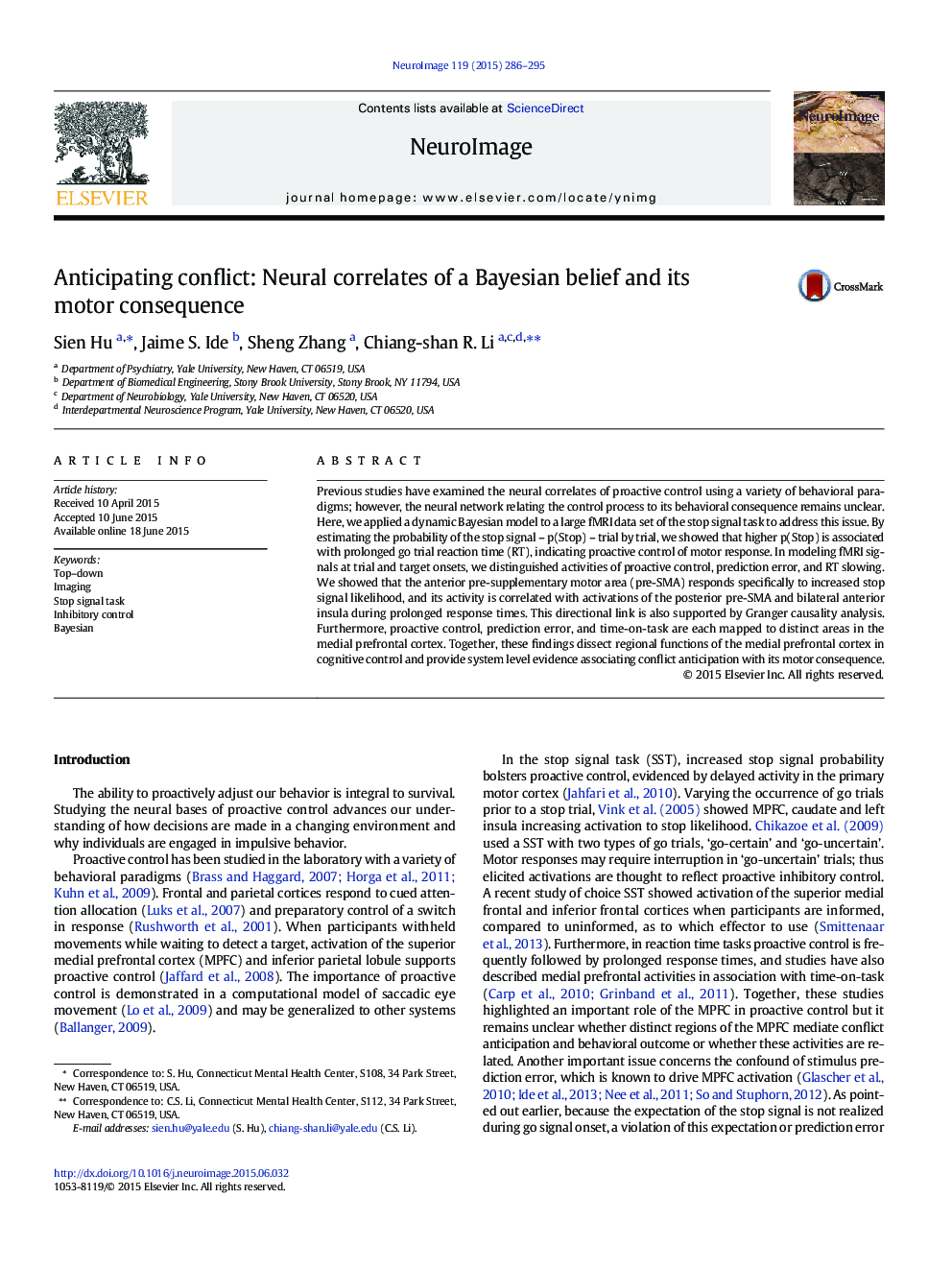| Article ID | Journal | Published Year | Pages | File Type |
|---|---|---|---|---|
| 6024838 | NeuroImage | 2015 | 10 Pages |
â¢We used a stop signal task to study the component processes of proactive control.â¢Conflict anticipation or a higher p(Stop) is associated with prolonged RT.â¢Distinct mPFC regions respond to p(Stop), prolonged RT, and prediction error.â¢Activations to p(Stop) Granger cause activities during prolonged RT.
Previous studies have examined the neural correlates of proactive control using a variety of behavioral paradigms; however, the neural network relating the control process to its behavioral consequence remains unclear. Here, we applied a dynamic Bayesian model to a large fMRI data set of the stop signal task to address this issue. By estimating the probability of the stop signal - p(Stop) - trial by trial, we showed that higher p(Stop) is associated with prolonged go trial reaction time (RT), indicating proactive control of motor response. In modeling fMRI signals at trial and target onsets, we distinguished activities of proactive control, prediction error, and RT slowing. We showed that the anterior pre-supplementary motor area (pre-SMA) responds specifically to increased stop signal likelihood, and its activity is correlated with activations of the posterior pre-SMA and bilateral anterior insula during prolonged response times. This directional link is also supported by Granger causality analysis. Furthermore, proactive control, prediction error, and time-on-task are each mapped to distinct areas in the medial prefrontal cortex. Together, these findings dissect regional functions of the medial prefrontal cortex in cognitive control and provide system level evidence associating conflict anticipation with its motor consequence.
